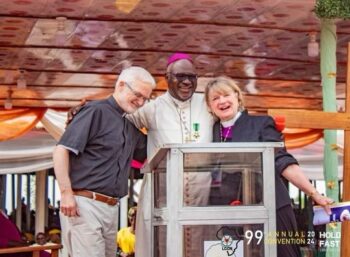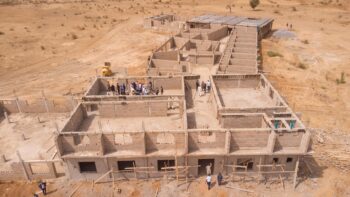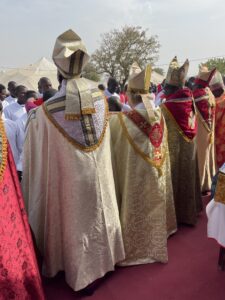Living and leading faithfully in tense times
October 7th, 2024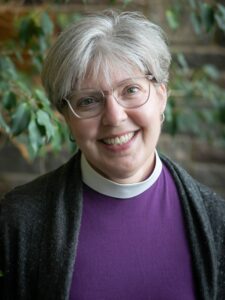 By Bishop Jen Nagel
By Bishop Jen Nagel
A week ago today we finished up this year’s Minneapolis Area Synod Bishop’s Theological Conference (a gathering of our synod’s pastors and deacons) with its theme “Living and Leading Faithfully in Tense Times.” As the conference ended and I walked to my car to begin the trip home to Minneapolis, the news notification on my phone flashed: Iranianmissiles were bombarding Jerusalem and other parts of Israel. God, have mercy.
Not so many days before that, waiting in line for an omelet in a hotel dining room, the morning news of the assassination of Hezbollah’s leader, Hassan Nasrallah, in Lebanon, had been our conversation, our prayer. God, have mercy.
“How do we live and lead faithfully in these tense times?”
Yesterday marked the one-year anniversary of the Hamas attacks, and the 365th day of Israel’s retaliation on the Palestinian people struggling to survive in Gaza. The war is spiraling, pulling in country after country, with tens of thousands of beloveds dead, and so many more injured (physically, spiritually, emotionally, morally), displaced, traumatized, starving, desperate, and no ceasefire or end in sight. God, have mercy.
How do we live and lead faithfully in these tense times? The timing of that news notification was not lost on me; I felt it in my body, the grief and tension. We go about our days and the tensions around the world, around our nation, and close to home are ever-present. While we have the privilege of seeming security and normalcy, one only needs to turn on the news or engage with someone whose world view differs, and the tensions are real, close, present.
RECENTLY WHEN THE ELCA bishops gathered in Chicago for our fall Conference of Bishops meeting, we affirmed a statement on truth. In this case the statement was written with our coming presidential election in mind and the ways hate-filled language and deception have shaped our daily discourse. But reading it, I can’t help but believe it offers guidance for all these tense times – the weeks leading up to our election, and also the war in the Middle East, and all the other conflicts and stresses.
I invite you to explore the whole statement: Try using it as a devotional practice; discuss it over a meal with those with whom you share much in common and those you don’t; if you are a preacher, weave it into the gospel you share.
“The Conference of Bishops truth-telling statement was written with our coming presidential election in mind and the ways hate-filled language and deception have shaped our daily discourse.”
Here is a bit: “We lament the ways this language has led to hate-fueled action. We refuse to accept the ongoing normalization of lies and deceit. We recommit ourselves to speaking the truth and pointing to the one who is truth.” The statement includes an invitation to act with vigilance, checking the facts, avoiding hurtful humor, advocating for the oppressed and marginalized. It might be easy to downplay our nation’s tense times given the enormity of the crisis in the Middle East. I pray, though, that we make a space for lament, for anxiety, for being changed in these tense times.
One of my favorite points in the statement reads like this: “Lean in with curiosity, engage with those who think differently and ‘put the best construction on our neighbor’s action’ (Luther’s explanation of the Eighth Commandment).” I wonder how the world would be different right now if we leaned into the tension, starting first very close to home (in our families, in our congregations, with our neighbors, at the grocery store). I am curious how engaging the tension, rather than avoiding it, can be an act of resistance, an act of solidarity.
Beloved ones, in these tense times, I pray for God’s mercy in the Middle East. And I pray, too, for God’s mercy and Christ’s courage right here, right where we are, right now. May it be so. Amen.

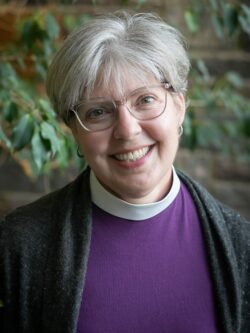
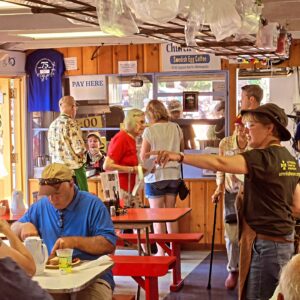
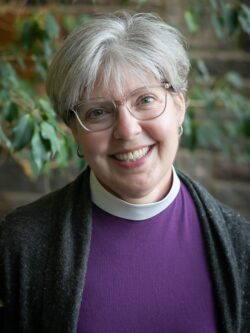
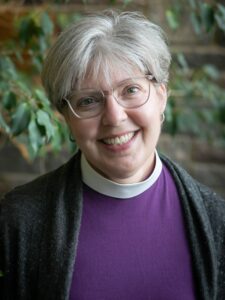 By Bishop Jen Nagel
By Bishop Jen Nagel 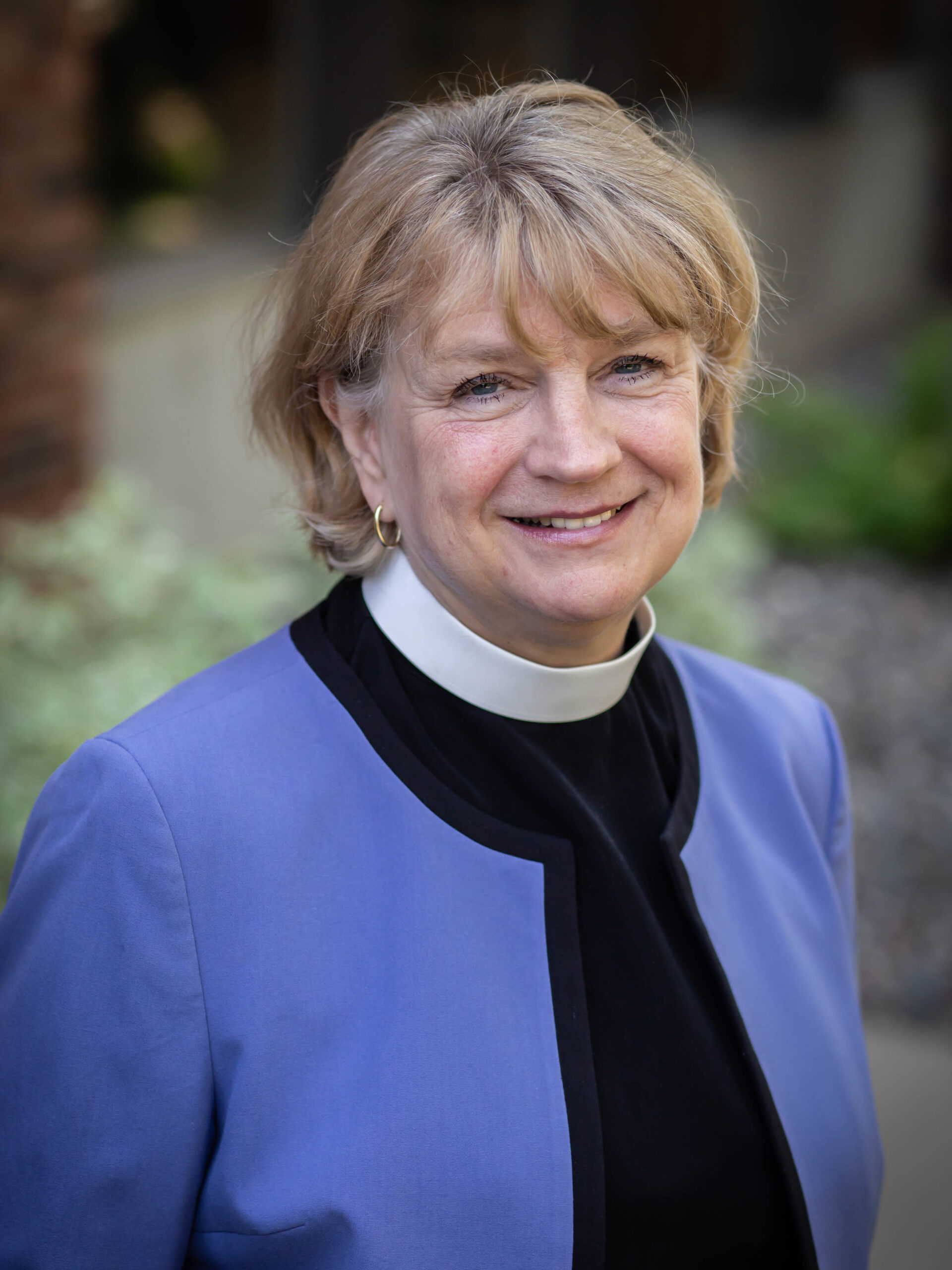
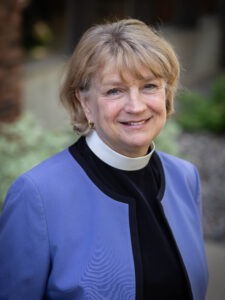 By Bishop Ann Svennungsen
By Bishop Ann Svennungsen 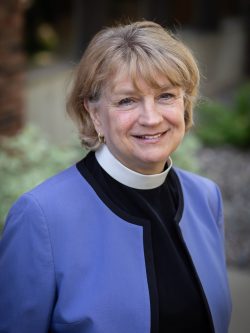
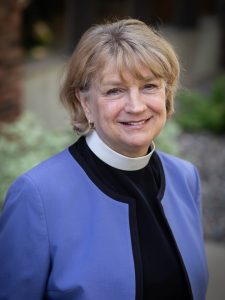 By Bishop Ann Svennungsen
By Bishop Ann Svennungsen 